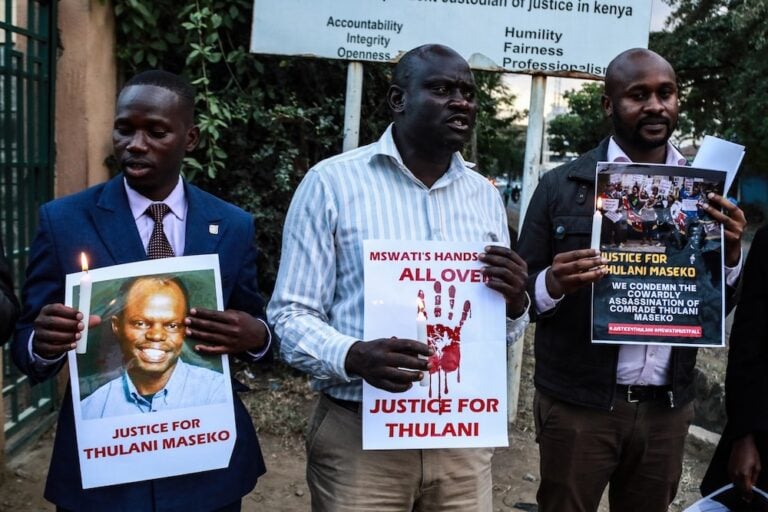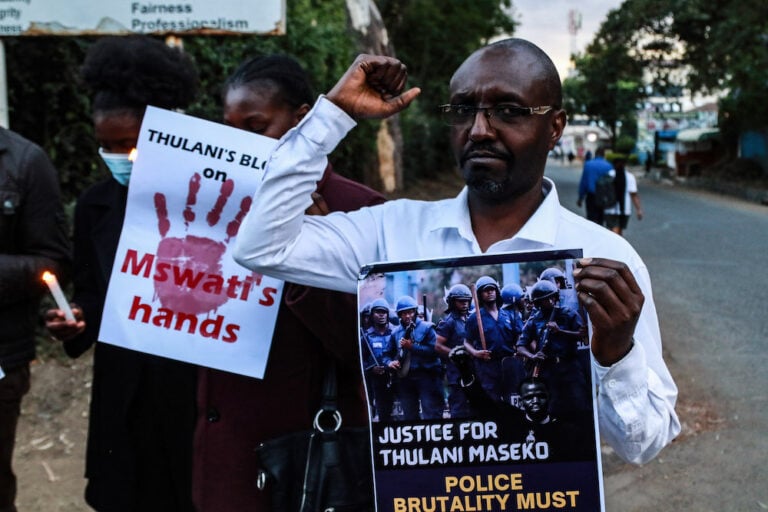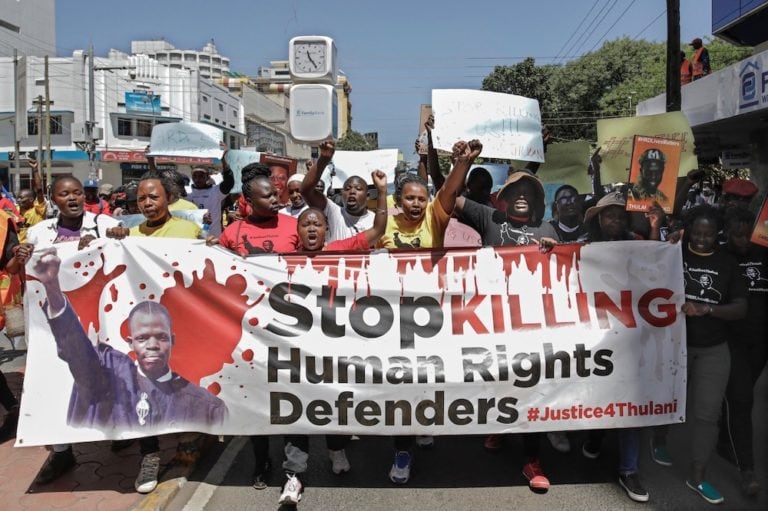(MISA/IFEX) – On July 4, 2007, Parliament in Swaziland sought to sanction the editor of the privately owned “Times of Swaziland” Sunday newspaper for expressing himself about the affairs of the House of Assembly in a recent commentary in his publication. Irate MPs refused to be educated or corrected on the right of freedom of […]
(MISA/IFEX) – On July 4, 2007, Parliament in Swaziland sought to sanction the editor of the privately owned “Times of Swaziland” Sunday newspaper for expressing himself about the affairs of the House of Assembly in a recent commentary in his publication.
Irate MPs refused to be educated or corrected on the right of freedom of expression and the press and went on to pass a resolution to probe the editor, Mbongeni Mbingo, for criticizing the Speaker and House of Assembly for blocking a recent motion by an MP seeking to question an alleged secret move by Cabinet and traditional authorities to amend certain clauses in the Constitution without the knowledge of the nation.
The House has appointed a five-member Select Committee to investigate the editor and his newspaper for alleged contempt of Parliament with a view to taking punitive measures against him or the publication. If found guilty, Mbingo faces a maximum two years in jail or E4000 (approx. US$600) fine, under the terms of recently amended Parliament Standing Orders. The Select Committee is supposed to complete its investigations within a month and report back to Parliament with recommendations.
BACKGROUND:
In his recent article published on Sunday, July 1, 2007, Mbingo questioned the wisdom of the Speaker of the House of Assembly, Prince Guduza, to block a motion by an MP who wanted Parliament to challenge an alleged secret move by Cabinet and the powerful traditionalist Swazi National Council Standing Committee (SNCSC) to amend certain clauses in the Constitution which they feel are ‘too progressive’ and a threat to the status quo.
It was recently reported that Cabinet and the traditional structures including the SNCSC had begun secret meetings with a view to amending the Constitution without the knowledge of the nation and without following the constitutional provisions of amending the supreme law.
During a recent debate in Parliament, outspoken MP, Mfomfo Nkambule, challenged the House of Assembly to question the alleged secret move but was ruled out of order by the Speaker.
Mbingo said he was willing to go to jail for expressing himself as part of his constitutional right. He further said he was flabbergasted at the decision by Parliament to waste taxpayers’ money by probing him.
The editor added that he stood by his views and would remain so even after the Parliament Select Committee had completed its probe.
The Media Institute of Southern Africa (MISA) Swaziland has issued a statement condemning Parliament for its move to sanction the editor. MISA Swaziland said for politicians to punish journalists for what they write was a clear infringement on the right to freedom of expression and urged MPs to tolerate more criticism than ordinary citizens.


